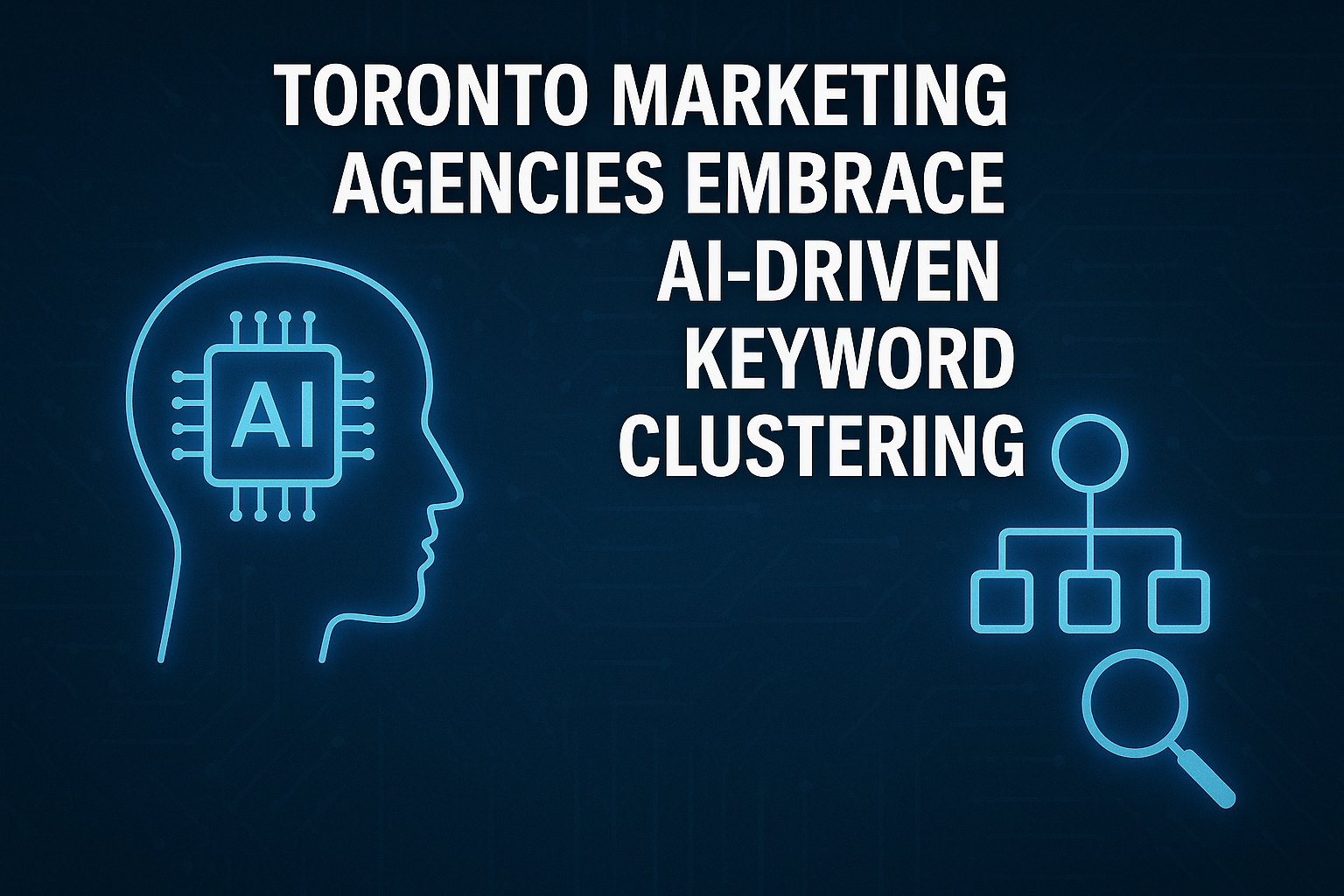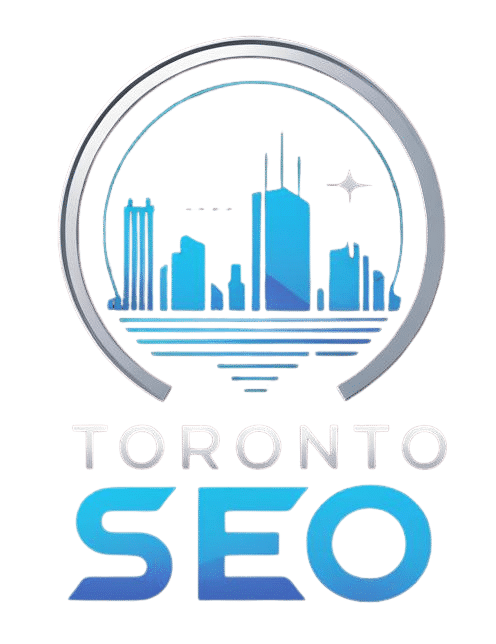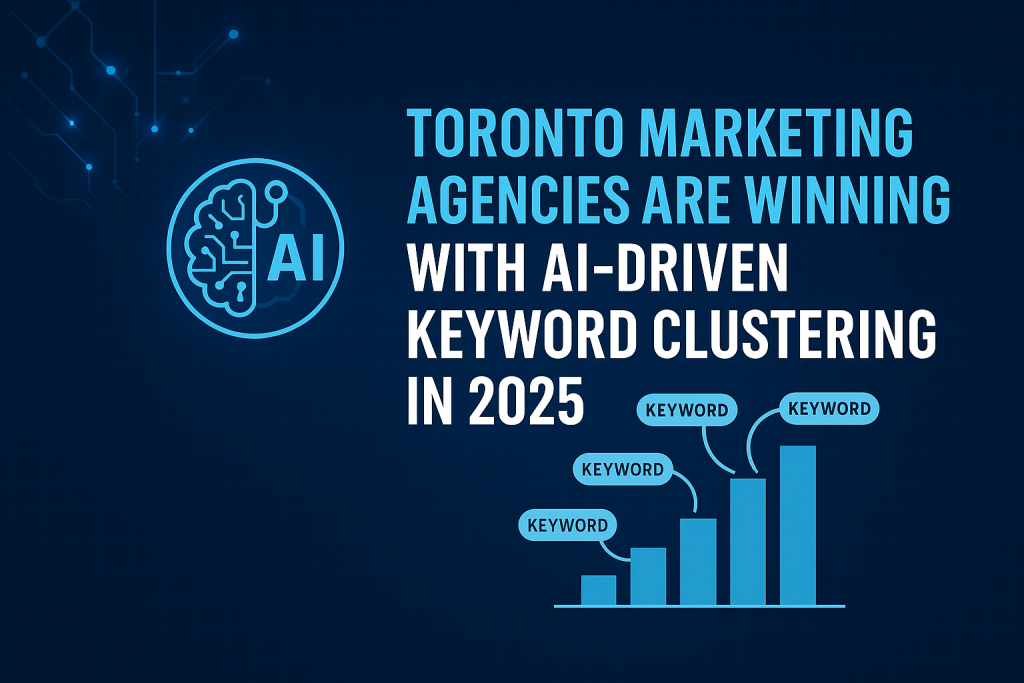
What Is AI-Driven Keyword Clustering?
AI-driven keyword clustering uses natural language processing (NLP) and machine learning to group related keywords based on semantic similarity, user intent, and search behavior. Unlike traditional methods that rely on manual sorting, AI can process thousands of keywords and organize them into meaningful groups at scale.
For instance, if you’re targeting the phrase “Toronto SEO agency,” AI tools might cluster related terms like “best SEO firms in Toronto,” “local SEO services,” or “Toronto digital marketing companies” based on user search patterns and Google SERP data.
This technique eliminates keyword cannibalization, improves topical authority, and aligns better with how Google understands search intent.
Why Toronto Marketing Agencies Are Leading the AI Shift
Toronto agencies are known for innovation and early tech adoption. As reported by top industry sources, many leading SEO companies in the city have already adopted AI-based strategies to enhance content relevance and streamline keyword research.
Scalability for Content Creation
Content teams can now generate editorial calendars based on clustered keyword sets, ensuring each article addresses a specific group of search intents. This method aligns perfectly with content silos and topic clusters—boosting both engagement and rankings.
Improved Topical Authority
By clustering keywords semantically, agencies can create a series of interconnected content pieces that build topical authority. For example, a cluster for “Toronto real estate SEO” might include blog posts about market trends, real estate lead generation, and IDX integration.
Efficiency Gains
AI tools reduce hours of manual keyword sorting into minutes. Tools like Surfer, MarketMuse, or ClusterAI generate optimized keyword groups based on Google’s NLP model (BERT), reducing human error and guesswork.
The Link Between AI Clustering and Search Intent
Google’s algorithm updates increasingly favor search intent over exact match keywords. Agencies using AI-based clustering can map keywords to intent—informational, navigational, transactional—and tailor content accordingly.
According to Google’s algorithm update breakdown, relevance is no longer just about inserting keywords. It’s about satisfying the user’s query journey. AI clustering allows marketers to build that journey from TOFU (top of funnel) to BOFU (bottom of funnel).
Case Study: A Toronto Business Triples Organic Leads
One local Toronto business partnered with an agency using AI clustering to revamp its blog strategy. Instead of writing general posts, they focused on tightly themed clusters. Within 90 days:
Organic traffic rose by 63%
Bounce rates dropped by 27%
Leads tripled due to higher intent-driven traffic
This transformation mirrors the shift many Toronto businesses are embracing—leveraging AI to generate smarter SEO growth.
Content Optimization Becomes Smarter
Once keywords are clustered, the next logical step is AI-assisted content optimization. Agencies are using tools to improve readability, keyword density, content gaps, and NLP relevancy—all at scale.
For deeper insights into this process, check out the guide on content optimization for engagement and rankings, which outlines how machine learning enhances not just what content is written, but how it’s optimized.
AI Clustering Supports Local SEO
Local SEO requires addressing multiple variations of service-based keywords across neighborhoods. AI clustering is ideal for organizing local terms like:
“SEO company downtown Toronto”
“Scarborough digital marketing firm”
“North York local SEO expert”
Toronto businesses are increasingly relying on local optimization in 2025, as detailed in the article on why local SEO is gaining traction.
Building a Personal Brand Through AI-Optimized Clusters
For Toronto founders, personal branding is becoming a key strategy. By clustering long-tail queries around their name, company, or philosophy, executives are boosting visibility across Google, LinkedIn, and media platforms.
Read more about the rise of personal branding in search and how it ties into keyword strategy.
AI Tools Driving the Movement
Here are some leading AI platforms enabling agencies to deploy keyword clustering at scale:
Keyword Insights – Uses NLP to cluster keywords and generate content briefs.
MarketMuse – Creates content plans based on topical authority scoring.
Surfer SEO – Maps keyword clusters to SERP intent and content outlines.
ChatGPT & Prompt Engineering – When paired with SEO frameworks, AI tools like ChatGPT are used for content ideation, as highlighted in this guide on prompt engineering for SEO.
Citation Building and Clustering Synergy
Agencies also pair AI clustering with local citation building, ensuring that every citation includes semantically relevant variations of keywords—boosting local search visibility across multiple platforms.
Integrating Clusters into Multi-Platform Campaigns
Toronto agencies aren’t just using clustering for SEO; they’re extending it to:
PPC campaigns: Grouping search terms to match ad groups more precisely.
Social media strategy: Selecting platform-specific clusters (learn how to choose the right social media platforms).
Email segmentation: Using cluster insights to personalize subject lines and message content.
Common Pitfalls When Implementing AI Clusters
Despite the benefits, some agencies still misuse or misunderstand clustering. Common mistakes include:
Over-clustering (too many small groups diluting authority)
Ignoring intent (grouping keywords purely on semantics, not purpose)
No interlinking (isolated content that doesn’t connect internally)
To maximize clustering value, every article should strategically interlink—like linking to hiring a Toronto SEO expert vs doing it in-house when discussing cost efficiency or decision-making frameworks.
The Future of SEO in Toronto Is AI-Powered
As more agencies pivot to AI, Toronto is emerging as a North American leader in smart search marketing. From prompt engineering to predictive clustering and real-time optimization, AI is setting a new gold standard.
For a broader perspective on trends, the article on the future of SEO in Toronto is a must-read.
Conclusion: Why AI Clustering Is No Longer Optional
AI-driven keyword clustering isn’t a trend—it’s a necessity. Toronto agencies adopting this approach are delivering better rankings, smarter content plans, and greater marketing ROI.
To learn more or to implement a cutting-edge AI keyword strategy, get in touch with our team.


